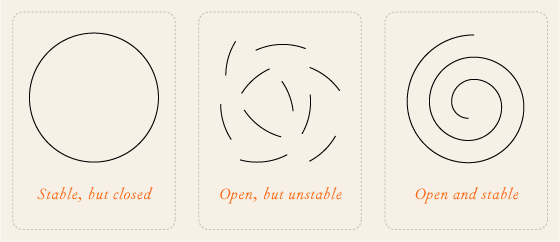When a person tells you something that is new to them — something they experience as new, whether because it is new to the world or just new to themselves — the generous thing is to find as much newness in it as possible, and to share that newness with them.
The temptation, of course, is to view the other person’s new idea or new insight or new knowledge as something we already had, as if this poor fool just caught up with us.
When people do this to me, it feels like a kind of stinginess. Somehow, this other person lacks the generosity to accept something new from someone like me. Maybe they can’t share excitement over another person’s achievement. Or maybe they cannot be bothered to exert effort to see subtle differences beyond the simple matching of resemblances. Or maybe they don’t like the feeling of anxiety that always attends even the smallest transcendence of one’s own conceptual system. Or maybe they see a loss in prestige being taught by someone else, and their envy demands minimizing other people’s achievements.
Whatever the motive, it feels terrible — deflated, alienated, humiliated — to be on the other end of this treatment.
My own moral method requires me now to turn it around and find where I have done and habitually do this myself. As always, I am finding numerous examples, and in the most painful places — in places where I’ve wounded people and damaged relationships.
Here is a new discipline of generosity I am going to experiment with. I will not pretend an entire idea is new if much of it is familiar and well-known. (I have tried that, and it is disingenuous and self-abasing.) What I will do instead is treat the familiar and known aspects of the idea as a launching point for an exploration of what is truly novel and valuable in the idea. I will look for exciting, consequential content and look for ways to collaboratively incorporate it into my own understandings. This is another way of saying that I will allow this other person to influence me and play a part in creating me.

